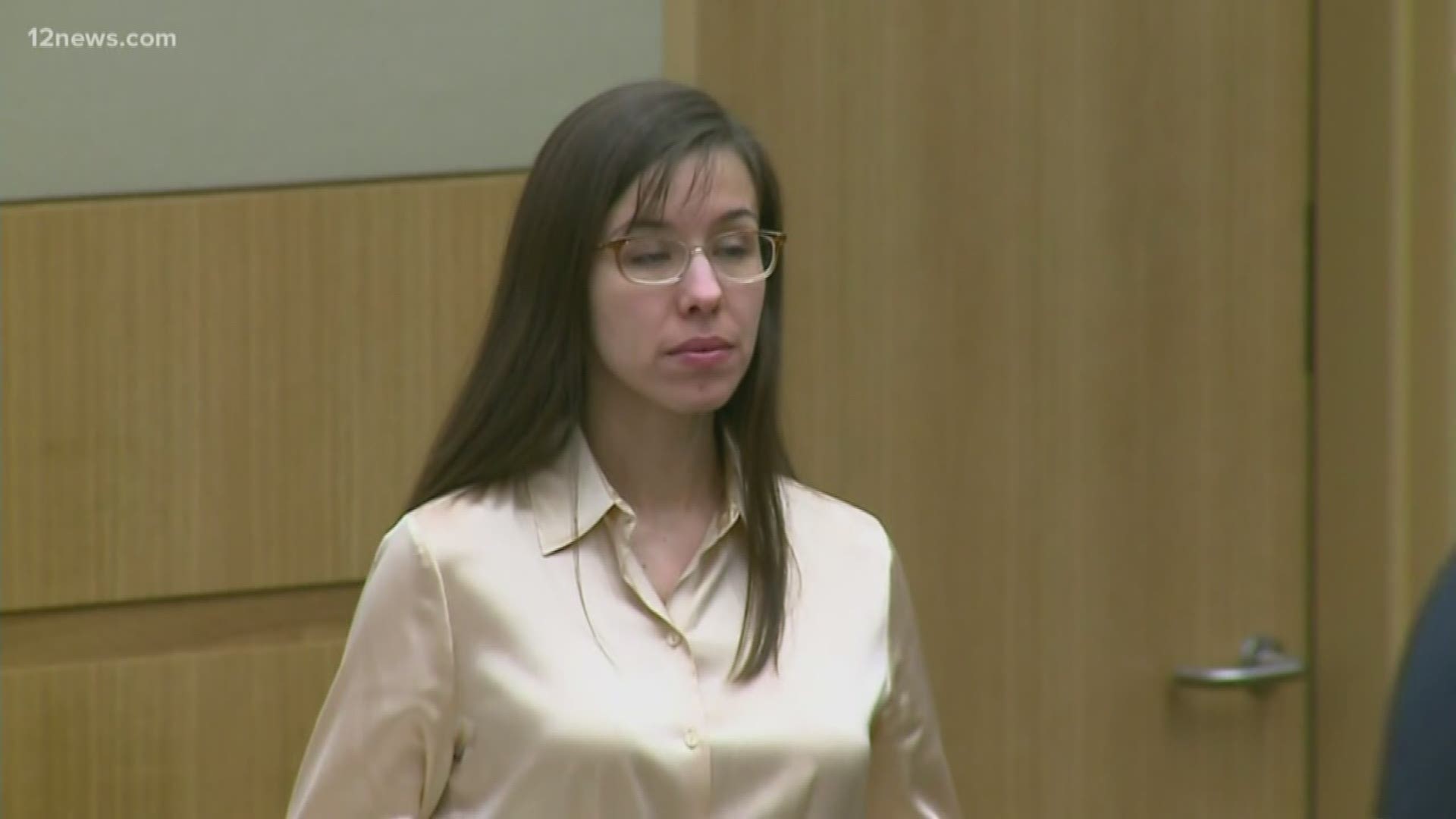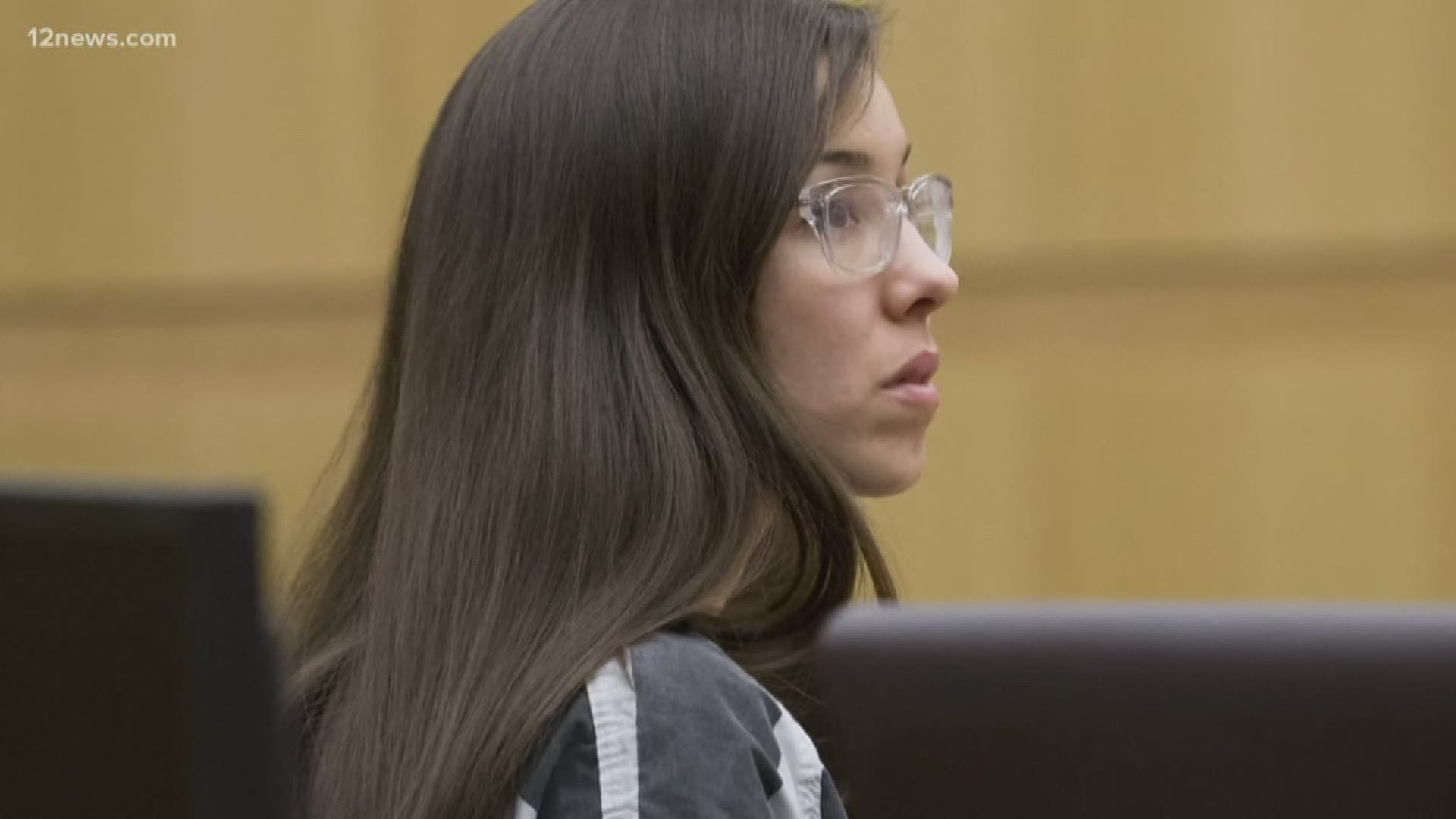The Intriguing Case Of Jodi Arias: A Deep Dive Into The Facts And Controversies
When you hear the name Jodi Arias, it's hard not to feel a mix of fascination and unease. This is one of those cases that has captured the public's imagination like few others. It's not just about a crime; it's about human nature, relationships, and the complexity of truth. The case of Jodi Arias is more than a legal story—it's a psychological puzzle that keeps people talking years after the verdict.
You might think you know everything about this case, but trust me, there’s so much more to uncover. From the intense media coverage to the courtroom drama, this story has layers upon layers of intrigue. It’s not just about what happened on June 4, 2008, but also about the motivations, emotions, and personalities involved.
So, why does the Jodi Arias case still resonate with people? Because it’s not just about guilt or innocence. It’s about understanding the human psyche, the fragility of relationships, and the impact of media on public perception. Let’s dive deeper into this fascinating story and explore what really happened.
Biography of Jodi Arias
Early Life and Background
Before the crime that made her infamous, Jodi Arias was just another person living her life. Born on July 26, 1980, in Salinas, California, she grew up in a relatively normal environment. Her parents were hardworking, and she had a younger brother. But beneath the surface, there were signs of a troubled childhood.
Here’s a quick look at some key details about Jodi Arias:
| Full Name | Jodi Suzanne Arias |
|---|---|
| Date of Birth | July 26, 1980 |
| Place of Birth | Salinas, California |
| Education | Graduated from Mesa Community College |
| Career | Freelance photographer, tech support specialist |
Her early life seemed unremarkable, but there were hints of a darker side. Jodi struggled with self-esteem issues and had a history of controlling relationships. These factors would later play a significant role in her legal troubles.
Understanding the Jodi Arias Case
The Tragic Event
Let’s rewind to the fateful day that changed everything. On June 4, 2008, Travis Alexander, a successful businessman and motivational speaker, was found dead in his Mesa, Arizona home. The scene was gruesome—he had been stabbed multiple times and shot in the face. But what shocked investigators even more was the evidence pointing to Jodi Arias, his ex-girlfriend.
The case quickly became a media sensation, with details emerging about the couple’s complicated relationship. Jodi initially claimed she had been in California at the time of the murder, but surveillance footage and other evidence contradicted her story. The investigation led to her arrest, and the rest, as they say, is history.
Key Evidence in the Case
When it comes to understanding the Jodi Arias case, the evidence is crucial. Here are some of the most significant pieces of evidence that shaped the trial:
- Surveillance footage showing Jodi near Travis’s home on the day of the murder.
- Photographs taken by Jodi at the crime scene, which she later admitted to taking.
- DNA evidence linking Jodi to the murder weapon.
- Phone records indicating contact between Jodi and Travis on the day of the crime.
All of these elements painted a damning picture, but the defense argued that the evidence could be interpreted differently. This is where the case gets really interesting.
The Trial and Verdict
A Courtroom Drama Like No Other
The trial of Jodi Arias was nothing short of a spectacle. Held in Maricopa County Superior Court, it lasted from January to May 2013. The proceedings were televised, and millions tuned in to watch the drama unfold.
One of the most controversial aspects of the trial was Jodi’s testimony. She claimed self-defense, saying that Travis had attacked her during a violent argument. Her story was met with skepticism by many, including the jury. After weeks of deliberation, the jury found her guilty of first-degree murder.
The Role of Media in Shaping Public Perception
You can’t talk about the Jodi Arias case without mentioning the media’s influence. From the moment the story broke, it dominated headlines. The coverage was intense, with reporters dissecting every detail of the case.
Some argue that the media played a role in swaying public opinion, portraying Jodi as either a victim or a manipulative killer depending on the narrative. This raises important questions about the ethics of media coverage in high-profile cases.
Psychological Insights into the Case
What Drives Someone to Commit Such an Act?
Psychologists have weighed in on the Jodi Arias case, offering insights into the motivations behind her actions. Many point to her troubled relationship with Travis as a key factor. There were signs of emotional dependency and manipulation, which may have contributed to the tragic outcome.
Experts also note the role of personality disorders in cases like this. Jodi exhibited behaviors consistent with narcissistic and borderline personality traits, which could explain her actions.
Legal Implications and Precedents
From a legal perspective, the Jodi Arias case set several precedents. It highlighted the challenges of proving intent in murder cases and the importance of evidence interpretation. The trial also sparked debates about the death penalty, as the jury initially deadlocked on sentencing.
Ultimately, Jodi was sentenced to life in prison without the possibility of parole. This decision was influenced by the public outcry against the death penalty and the complexity of her case.
Public Reaction and Social Impact
Why Does This Case Still Matter?
Even years after the verdict, the Jodi Arias case continues to provoke strong reactions. People are divided on whether she’s guilty or innocent, and the debate rages on social media and in forums. This case has sparked discussions about relationships, mental health, and the justice system.
It’s also had a lasting impact on true crime enthusiasts, inspiring documentaries, books, and even a Lifetime movie. The fascination with this case shows no signs of waning.
Lessons Learned from the Jodi Arias Case
There are several takeaways from this case that extend beyond the legal realm:
- The importance of understanding mental health and its impact on behavior.
- The need for more transparency in the justice system.
- The dangers of media bias in shaping public perception.
These lessons remind us that every case is more complex than it seems at first glance.
Future Developments and Speculation
While Jodi Arias remains in prison, her case is far from over. Appeals and legal challenges continue, keeping the story alive in the public consciousness. Some believe new evidence may emerge, while others think the truth will never fully come to light.
Regardless of what happens next, the Jodi Arias case will remain a defining moment in the history of true crime.
Conclusion: What Do We Really Know?
In conclusion, the Jodi Arias case is a reminder of the complexities of human nature and the justice system. While the facts may seem clear, the motivations and emotions behind them are anything but. This case challenges us to look beyond the headlines and consider the broader implications of our legal and social systems.
I encourage you to share your thoughts in the comments below. Do you think Jodi is guilty? Or is there more to the story? Let’s keep the conversation going and explore the truth together. And don’t forget to check out other articles on our site for more fascinating insights into the world of true crime!
Table of Contents
- Biography of Jodi Arias
- Understanding the Jodi Arias Case
- Key Evidence in the Case
- The Trial and Verdict
- The Role of Media in Shaping Public Perception
- Psychological Insights into the Case
- Legal Implications and Precedents
- Public Reaction and Social Impact
- Lessons Learned from the Jodi Arias Case
- Future Developments and Speculation

Jodi Arias Telegraph

Crime Scene Photos Of Jodi Arias Case

Jodi Arias Trial Telegraph